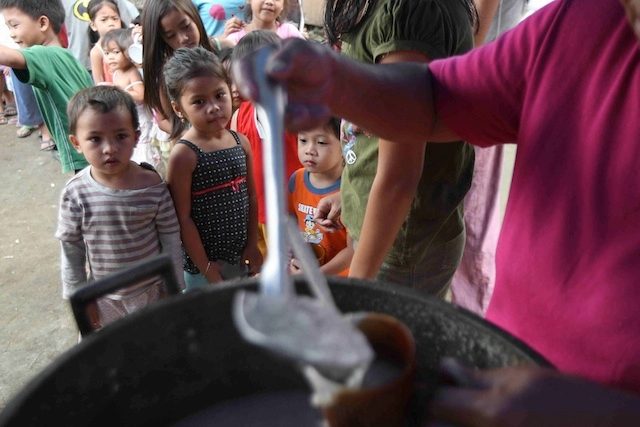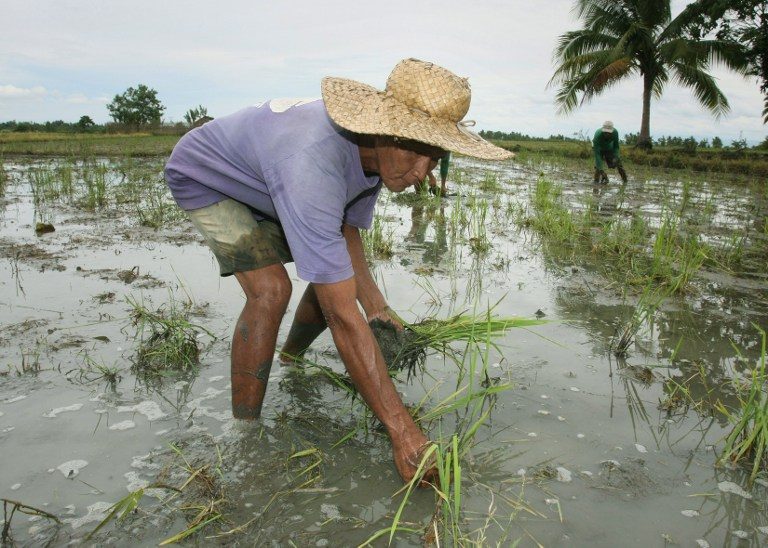SUMMARY
This is AI generated summarization, which may have errors. For context, always refer to the full article.

MANILA, Philippines – If one is aware of the signs leading to a problem, something can be done to stop it.
This is the premise of food security and nutrition in the Philippines, the Early Warning System for Food and Nutrition Security (EWS-FNS) of the National Nutrition Council (NNC), which pushes such thinking.
The EWS-FNS is a food security information system that “provides timely notice of impending acute food security crises.” It is intended to push for timely action against malnutrition to keep the situation from worsening.
“It may provide recommendations on building coping capacity and resilience, preparedness on possible disaster mitigation, and recovery or rehabilitation interventions that rebuild livelihoods and food security,” NNC said in a statement.
The council will roll out a series of capacity-building activities to promote localized actions and monitoring against problems of hunger and malnutrition in the Philippines.
Targeting a total of 30 municipalities, the move is part of the NNC’s strategy to strengthen local government units (LGUs) in implementing the EWS-FNS.
Previously modeled under the Millennium Development Goal Achievement Fund Joint Programme, the system is also part of the components of the Philippine Food and Nutrition Surveillance System (PFNSS) and the Maternal and Young Child Nutrition Security Initiative in Asia project (MYCNSIA). (READ: How ASEAN is trying to end hunger)
Empowering the local workers
EWS-FNS will enable communities to take mitigating or preventive action depending on the early warning information. It will also pave the way for them to address any threat – caused by nature or even human-induced – that may negatively affect the capacity of households to obtain sufficient food requirements.
The system will differ depending on the area, considering different factors such as type of land, season, and temperature, among others.
For example, in Atok, Benguet, the local government decided on the following levels in the early warning system:
- A level of 90% or better: Normal (Color code GREEN)
- A level between 75% to 89%: Warning (Color code ORANGE)
- A level of less than 75%: Critical level (Color code RED)
This highlights the important role of LGUs as they are expected to be on the frontline of the fight against hunger and malnutrition. (READ: How can LGUs help end hunger?)
To zoom in on each resident down to the barangay level, the NNC will also improve the training of barangay nutrition scholars (BNS) to effectively work on household data collection and analysis in their respective barangays. (READ: Who are your barangay nutrition scholars?)
The expansion of the EWS-FNS will focus on areas identified to be more vulnerable to worsening state of nutrition.
Among the targeted municipalities is T’boli, a first class municipality in the provice of South Cotabato. The municipality ranks 6th in the prevalence of underweight children under 5 years old in Region XII, aside from being vulnerable to natural disasters – a threat to food and nutrition security. (READ: Proper nutrition during disasters: Is it possible?)
NNC Regional Nutrition Program Coordinator Arceli Latonio is hopeful that the EWS-FNS is a step towards achieving zero hunger and better food security in their area.
“Through this, the people in the community would know what particular food they should be planting or food they should be preparing for to avoid scarcity of food or undernutrition,” she said.

How can the vulnerable help?
To fight hunger and malnutrition, it is important to ensure the cooperation of every individual – including local residents.
They are the ones mostly at risk of suffering from the problems. They are also the ones who have most likely experienced going through days of hunger due to different factors such as poverty and food insecurity. (READ: How a community curbs malnutrition)
The NNC said that the EWS-FNS will help raise awareness among people on the issue of hunger and how the problem arises in the community.
But raising awareness is just one side of ending hunger.
To be fully effective, the capacity of local residents should be improved through numerous ways, beginning with education on the value of family farming and helping them jumpstart their small gardens.
It is also important to help them get better accessibility to social services such as health programs and proper infrastructure like farm-to-market roads which will provide them options to care for their family’s nutrition. There is also a need to instill the importance of nutrition in the minds of parents. – Rappler.com
Add a comment
How does this make you feel?
There are no comments yet. Add your comment to start the conversation.